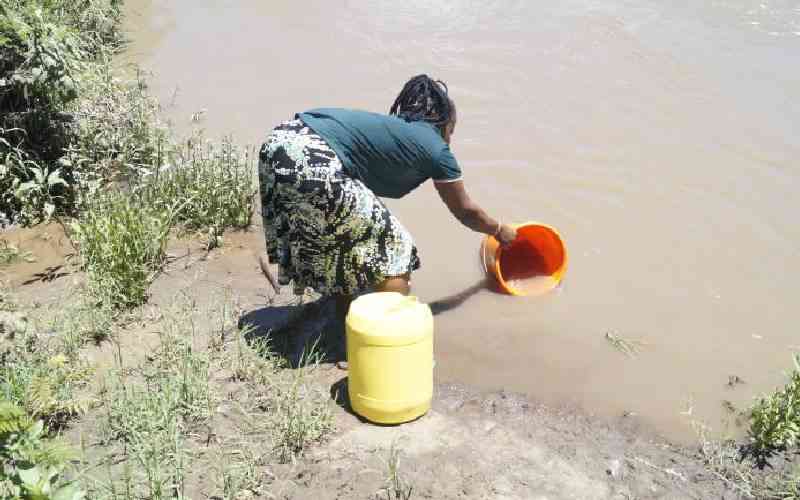
Vulnerable communities in Kenya and Rwanda are going to benefit from the rehabilitation of community water infrastructure by the Food and Agriculture Organisation of the United Nations (FAO) and the Government of Japan.
In Kenya, the project focuses on Migori county through the construction of community water reservoirs (water pans) to store excess water which would otherwise cause flooding, destroy roads, farms and settlements in the lowlands.
The large community water pans will have capacity to hold 70,000 m3 of the storm runoff and support about 500 households (i.e. 2,500 people) to irrigate more than 40 hectares (100 acres) of land under nutritious crops and certified hybrid rice seeds.
The project will also empower youth and women entrepreneurs through grain threshers that will be used in rice and cereals at a fee. Five groups will be formed across the rice growing areas with each group having 10 members, supporting 50 households equivalent to 250 people.
In Rwanda, the project is targeting 5,775 households (i.e. 28,875 people), in Rutsiro and Burera Districts, with the rehabilitation of flood control canals, retention ponds and culverts. Awareness campaigns and training sessions will be held to inform communities on water-related disaster risks, preparedness, and responses.
Addressing a workshop in Migori, Tetsuto Inagaki from the Mission of Japan to the African Union said the project comes at a critical time when the East Africa region is experiencing unprecedentedly high levels of food insecurity, with an estimated 41 million people highly food insecure, as a result of climate extremes, the historic six-season drought and severe flooding, among others.
"Through this project, in partnership with the FAO, I am confident that the vulnerable communities of Kenya and Rwanda will overcome the challenges to alleviate food insecurity. Japan is not only willing to make its efforts to promote the development of Africa but is also very keen to learn from Africa", said Mr Inagaki.
Speaking on behalf of Governor Ochilo Ayacko, Migori County Executive Committee Member for Agriculture, Livestock, Veterinary services, Fisheries and Blue Economy Lucas Mosenda lauded the project saying it aligns with the county's vision and initiatives.
Mosenda assured of the county government's commitment to improve water access for the communities in lower parts of the region affected by the climatic shocks.
In a statement, Farayi Zimudzi, FAO Subregional Coordinator for Eastern Africa ad interim, said that the region is experiencing above-average rains, which have resulted in flooding, and landslides, loss of lives and livestock, displacement of hundreds of people, and the destruction of farmlands and critical infrastructure.
Zimudzi regretted that the floods, coupled with prolonged drought in the region, have further aggravated the food insecurity.
"This project is timely to support the livelihoods of vulnerable communities in the two countries and serve as proof of concept that disastrous floods may be turned into productive use by rehabilitating water infrastructures to mitigate immediate impacts while addressing some of the root causes of these repeated shocks in Kenya and Rwanda."
The Eastern Africa region is currently experiencing unprecedented levels of food insecurity with an estimated 41 million people highly food insecure and in need of urgent action.
Key drivers of food insecurity include climate extremes (a historic six-season drought across the Horn of Africa and severe flooding), conflict and insecurity, and economic challenges such as currency depreciation, and high food prices.
According to the IGAD Climate Prediction and Applications Centre (ICPAC), the region has been experiencing above-average rainfall during May - July 2024 season. While this is a welcome prospect for food security after the prolonged drought that gripped the region until early 2023 that rendered the soil less absorbent and impeded the percolation of rainwater into the ground, there is an elevated risk of flooding and landslides.
 The Standard Group Plc is a multi-media organization with investments in media
platforms spanning newspaper print
operations, television, radio broadcasting, digital and online services. The
Standard Group is recognized as a
leading multi-media house in Kenya with a key influence in matters of national and
international interest.
The Standard Group Plc is a multi-media organization with investments in media
platforms spanning newspaper print
operations, television, radio broadcasting, digital and online services. The
Standard Group is recognized as a
leading multi-media house in Kenya with a key influence in matters of national and
international interest.
